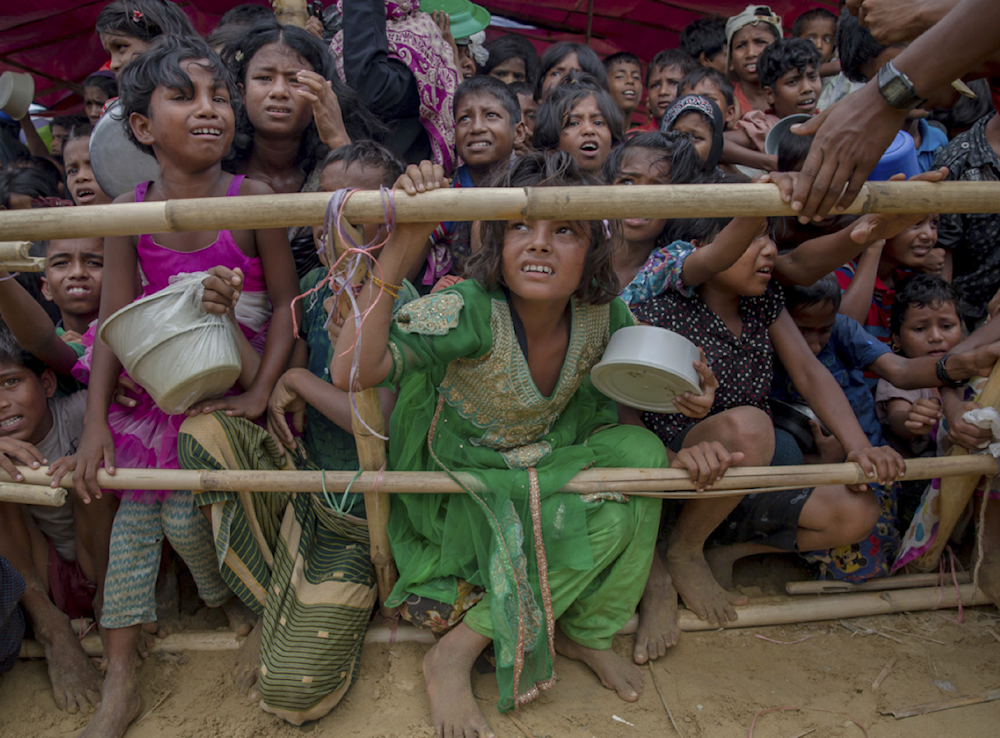UN fears repeat of 2017 atrocities against Rohingyas
Hundreds of thousands of Rohingya left Rakhine in 2017, following a military operation that is now the subject of a United Nations genocide court case.
-

Rohingya Muslim children who crossed over from Myanmar into Bangladesh wait squashed against each other to receive food handouts distributed to children and women by a Turkish aid agency at a refugee camp on Oct. 21, 2017. (AP)
The United Nations warned Friday it fears a repetition of the 2017 crimes against Myanmar's Rohingya minority, warning that a human disaster is unfolding in Rakhine State.
UN human rights official Volker Turk expressed great concern about Myanmar's rapidly deteriorating situation, notably in Rakhine, where hundreds of people have allegedly been murdered while fleeing conflict.
Since November, Myanmar's western Rakhine state has been experiencing clashes following an attack by the Arakan Army (AA) on security forces, which effectively terminated a ceasefire that had been in place since the military coup in 2021.
The AA claims to be fighting for more autonomy for the state's ethnic Rakhine people, which also includes around 600,000 members of the Rohingya Muslim minority.
Hundreds of thousands of Rohingya left Rakhine in 2017, following a military operation that is now the subject of a United Nations genocide court case.
"Thousands of Rohingya have been forced to flee on foot, with the Arakan Army herding them repeatedly into locations that offer scant safe haven," Turk told a news conference, adding that as border crossings as closed, members of the Rohingya community are "finding themselves trapped between the military and its allies and the Arakan Army, with no path to safety."
Bangladesh today hosts around one million Rohingya refugees.
Turk stated, "This month marks seven years since the military operations which drove 700,000 across the border into Bangladesh. Despite the world saying 'never again', we are once more witnessing killings, destruction and displacement in Rakhine."
The UN High Commissioner for Human Rights stated that parties to the armed conflict are denying culpability for atrocities on the Rohingya, which "stretches the bounds of credulity."
According to the UN Human Rights Office, both the military and the Arakan Army have perpetrated significant human rights breaches and atrocities against the Rohingya population.
These include extrajudicial executions, some of which involve beheadings, abductions, forced recruitment, indiscriminate shelling of cities and villages, and arson assaults.
"Both the military and the Arakan Army bear direct responsibility for the human tragedy that is unfolding in Rakhine," he stated.
Turk cited that these atrocities "demand an unequivocal response" and that those responsible "must be held accountable, and justice must be pursued relentlessly" to prevent the crimes of the past from repeating themselves.
Turk called on both parties to cease attacks on civilians and urged ASEAN, the Association of Southeast Asian Nations, to take all necessary measures to protect the Rohingya.

 3 Min Read
3 Min Read








